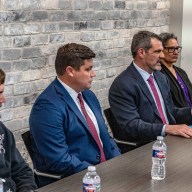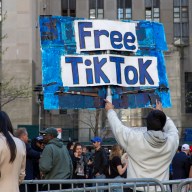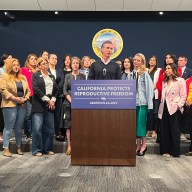By Nicolás Misculin
BUENOS AIRES (Reuters) – Argentina’s center-right President Mauricio Macri is taking down portraits and closing museums and other tributes to his left-leaning predecessors, getting rid of their cultural legacies as well as their populist economic policies. Since taking over for Cristina Fernandez in December, Macri has removed sculptures of her late husband and former president Nestor Kirchner and of Juan Perón, the namesake of Argentina’s most influential political movement. “Culture is crucial to building a political identity,” said sociologist Mercedes González Bracco of state-run science agency Conicet. “Macri’s party believes a makeover of the Kirchner style is needed.” Fernandez continues to be a formidable political opponent for Macri, even as moderate Peronist factions abandon her. Though she isolated Argentina from capital markets and her nationalist polices spooked investors, about a third of Argentines remain loyal to her and say Macri will never be able to undo her legacy. Nostalgia for her government’s generous subsidies, high employment rates and social safety nets is growing as Macri’s austerity measures bite. A poll by consultant Management & Fit showed the number of Argentines who view Macri favorably fell 13 percentage points since December to 42.5 percent. Fernandez’s allies could gain ground in congressional elections next year as a result, potentially complicating the reform efforts and making Macri all the more keen to get rid of monuments to his ideological opponents. MAIN POLITICAL FORCE
While a new leader might redecorate in any country, Macri is waging war on a movement that is particularly replete with symbolism. Peronism has been Argentina’s main political force since the 1940s and images and references to Juan Perón and his glamorous wife Eva (Evita) are omnipresent. After her husband died in 2010, then-president Fernandez sought to build a similar reverence for his 2003-07 rule. She had streets renamed and monuments built in his honor, symbols Macri is trying to dismantle as he steers the country on a radically different, pro-market course. Macri closed a room dedicated to Kirchner in a local cultural center and shut down a state-sponsored science and entertainment center the couple inaugurated. Other monuments to Peronism, including a museum dedicated to the life of Evita that is a popular tourist attraction in Buenos Aires, remain open. Macri did redesign a presidential museum to downplay the legacy of Kirchner and Fernandez’s combined 12 years in power, however, removing photos of the couple and a football uniform emblazoned with “100 percent K.” “Half the museum was dedicated to the past and half to the Kirchners,” said historian Luciano de Privitellio, who helped remodel it.
OFFICIAL NARRATIVE
Those loyal to Fernandez hope Macri’s failure to fulfill campaign promises of rapidly kickstarting economic growth and curbing inflation might restore her radical faction of Peronism to power. They are fighting to preserve a positive memory of her, regardless of how many portraits are taken down. “The new government wants to show something different, but you can’t erase all the symbols,” said Gustavo López, a former aide to Fernandez, calling Macri’s efforts a “vain attempt.” Macri’s government says it expects the economy to improve by the end of the year and blames Fernandez for spending recklessly and scaring away investors. While he is rapidly taking down relics of his predecessors, the president does not plan to replace the Kirchner’s left-wing populist narrative with his own, Privitellio said. Walls that previously held Kirchner propaganda and images of leftist icons like Argentine-born Cuban revolutionary Ernesto “Che” Guevara and Venezuela’s late president Hugo Chavez will remain blank while Macri inhabits the presidential palace. “In this battle we have decided to take out the enemy cannons but not to replace them. There will no longer be an official narrative of history,” Privitellio said.
(Writing by Caroline Stauffer; Editing by Matthew Lewis)


















